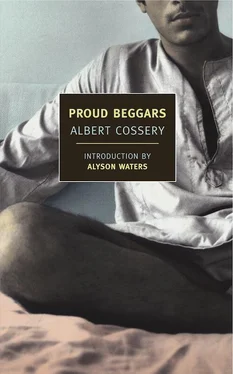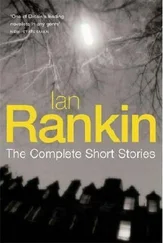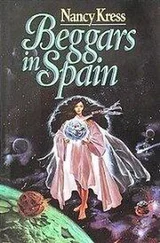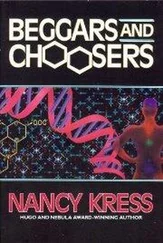Yeghen held his breath. It was a moment for premeditated murder, but a murder for the fun of it. How long would she continue to think he could be mortified by these pathetic scenes of bourgeois high morality?
Soon she came back and placed a coin on the table.
“Here, drink my blood!”
What a tragedienne! And what a shame the whole world couldn’t witness such a scene. A truly edifying spectacle! The unnatural son persecuting his old mother! It would make lots of tears flow. Yeghen grinned, took the money, put it in his pocket, and stood up to leave.
“Peace be with you, Mother.”
“At least stay to eat,” she said. “It’s a good soup.”
“Not tonight, Mother, I’m not hungry. But I promise to come again to take you to a chic restaurant. Then we’ll go to a cabaret. Wouldn’t you like to go to a cabaret to admire the belly dancers? You’ll see, Mother, life is beautiful.”
Yeghen emerged from the basement like a diver returning from the muddy depths and happily breathed the night air. Finally liberated from that atmosphere of respectable rot! Everything in that abject hovel was horribly falsified, impervious to joy. Why, in heaven’s name? Was joy only the lot of the rich? That was a fundamental error. There was joy even in prison — Yeghen knew that better than anyone. In his mother’s eyes, however, this simple truth became grounds for suspicion; she saw only depravity and idleness in it. She distrusted all joy bred in suffering; wasn’t it an insult to her poverty? To be sure, beyond the pleasure she took in unhappiness, there was indeed real suffering that Yeghen didn’t try to deny. He would even have been sensitive to it had she not tried to persuade him with her depressing, cowardly ideas. She smothered every feeling of tenderness in him. She prevented him from loving her simply, forcing him to defend himself against the phantoms of a misery whose illusory and futile character he had recognized long ago.
Yeghen fled through the streets, still feeling pursued by this mother and her poisoned love, who wanted to destroy all his insouciance. Under the pale light of streetlamps, his short, lean silhouette and skipping gait made him resemble an immense nocturnal bird. In this no-man’s-land between the native quarter and the European quarter, rare passersby sometimes made a fleeting appearance, then disappeared in the night like people glimpsed in nightmares. Yeghen slowed down, wondering which way to go. He would have to make a long detour to reach the quarter of El Azhar without crossing the European city. Under no circumstances did he care to venture into that citadel of lucre and boredom. The false beauty of those great thoroughfares swarming with a mechanical crowd — where all real life was excluded — was a particularly odious spectacle to him. He detested the cold, pretentious, modern buildings, resembling gigantic sepulchers, and the garishly lit store windows, full of implausible objects that nobody needed to live. Not to mention that he stood out awkwardly. It was as if he found himself in a strange city whose customs were unknown to him. At the slightest word or gesture, people turned to stare after him. And their police were better organized; they had to protect all this extravagant wealth. Against what? Against whom? Yeghen didn’t see the reasons motivating such fear: they were so well barricaded with their riches that certainly no one would dream of robbing them.
He turned right and continued his skipping walk through the intermittent light of the streetlamps.
It must be said in his favor that Yeghen didn’t consider himself a genius — a rare characteristic among poets. He found that genius lacked gaiety! The immense enterprise of demoralization that certain supposedly superior minds undertook against humanity seemed to him to stem from the most harmful criminality. His esteem went, instead, to ordinary people, neither poets nor philosophers nor ministers, but simply people possessed by a joy that was never extinguished. For Yeghen, the real value could be measured by the quantity of joy contained in each person. How could anyone be intelligent and sad? Even in front of the hangman, Yeghen would be irrepressibly frivolous — any other attitude would seem hypocritical and stamped with false dignity. It was the same with his poetry. It was the very language of the people among whom he lived, a language where humor flowered despite the worst miseries. His popularity in the native quarter equaled that of the monkey trainer and the puppeteer. He even believed he wasn’t as deserving as these public entertainers; he would have preferred to be one of them. In no way did he resemble the man of letters who worried about his career and his posthumous reputation; he sought neither fame nor admiration. Yeghen’s poems were composed using simple everyday words, felt with his infallible instinct for life at its most authentic; a child could understand them as readily as an adult.
This interminable street with closed shops was lugubrious and unsavory, with streetlamps lined up like a long funeral procession. Yeghen quickened his step. He was anxious to reach the Mirror Café, to enjoy a mint tea in that atmosphere of sweet words and joyful insouciance. Suddenly he had a kind of illumination and stopped in his tracks. The time! What time could it be? Was he still in time to see the girl? How could he have forgotten her? He panicked and almost began to run.
He had no way to find out the time; there was no one in sight on this deserted street. Yeghen felt desperate until he saw a man coming out of a porte cochere. He was a fine, corpulent man dressed in the European style and muffled up in a heavy, perfectly cut black coat. He looked like a man who would own a watch.
Yeghen slowed his steps and went up to him.
“Can you tell me the time, my Bey?”
The man nonchalantly took a large silver watch from his fob and consulted it.
“Six forty-five,” he said. “What time is your train?”
“It’s not a train,” said Yeghen. “I have a date with my mistress.”
The man looked closely at Yeghen, shook his head several times, and said, “Anything is possible, my dear man!”
“It’s more than possible,” Yeghen insisted. Without thanking the man, he continued on his way.
The swine! He had seemed to doubt he could have a date with his mistress. Yet it was the truth, or almost.
He was still in time to see her passing by; she never came home before seven o’clock. He stopped several paces from the house and stationed himself on the edge of the sidewalk in a dark spot between two streetlamps. It was a fairly busy street and several stores were still open; two or three strolling merchants with their handcarts full of fruit lit by smoky lanterns vaunted their wares in sepulchral voices. A café was nearby; despite the distance Yeghen could clearly hear the rattle of dice against wood: backgammon players. He waited, terribly excited, his head turned in the direction from which the girl would come.
Their first encounter had been purely by accident. That night, under the delightful influence of the drug, Yeghen was tramping through this same street when he saw her loom up like a superb apparition in the light of a streetlamp. Their eyes met, and he thought that he read a promise and an impulse in hers to which he was hardly accustomed. Her look was one of intelligence, able to appreciate mystery. Instead of a frightened beast’s retreat, it showed her assent before the vivid manifestation of his presence. Hers was the only woman’s gaze wherein Yeghen felt neither pity nor sarcasm, but the instinctive knowledge of human nature at its most horrible. He suspected her to be the daughter of a civil servant. She was perhaps sixteen and took piano lessons, as he could tell by the music books she carried under her arm. She paraded along like a princess visiting the poor neighborhoods. It is true that with her music books she clashed strangely with the surroundings. In this quarter, to take piano lessons was such a rare, incongruous thing that one risked antagonizing a crowd. Yeghen was surprised not to see the neighborhood children pursuing her with their taunts. No doubt it was her bearing, rather than her father’s position as a civil servant, that kept them at bay. He himself broke into a cold sweat each time he tried to accost her. He had finally decided to do it this very night, but in an indirect manner, to so speak. It involved a poem he had composed in her honor and that he wanted to give her in an elegant, original fashion.
Читать дальше












